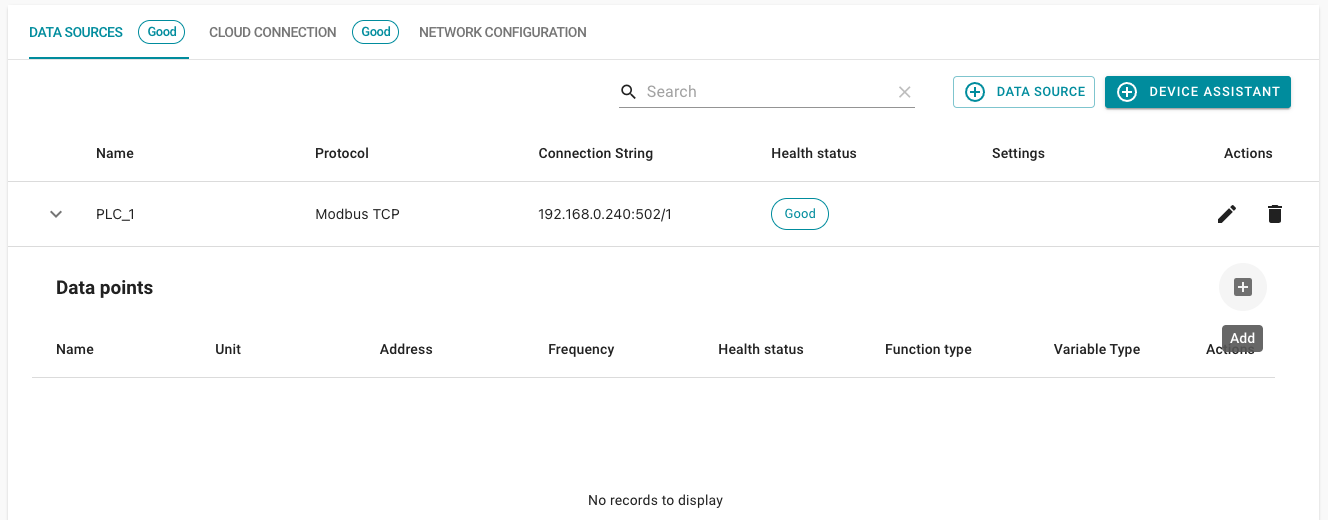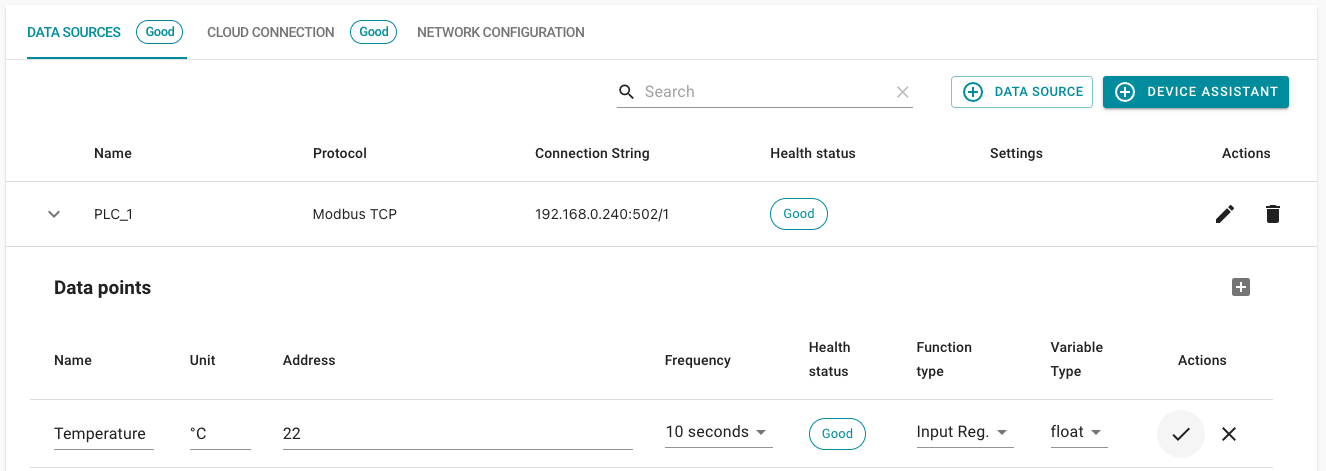Modbus TCP
Introduction
Modbus TCP is commonly used for communication with field devices (energy meters, smart sensors, VFDs) or PLCs. For field devices, usually the data sheet or manual of the device includes a table with available Modbus registers and what data they contain. For PLCs the address data is contained in the Engineering files (e.g. the PLC program).
Creating a Modbus data source
To create a Modbus data source, select Modbus TCP from the protocol dropdown. You must also name your data source and enter a connection string.
Modbus Connection String Structure: Device IP Address:Port/Slave Id Example Connection String: 192.168.0.240:502/1

Creating a Modbus data point
Expand the detail view of your created data source and click on the Add (+) button on the right.

Now enter the information specific to your data point:
- Name: Is used as name when reading out a data point (template access: datasource.name).
Unit: Is used as a unit when reading out a data point (template access: datasource.unit). (Example:
Temperature) - Address: Enter the Modbus address (offset) of your datapoint in the address field.
- Frequency: Interval at which the datapoint should be sent to a cloud connection.
- Function type: Read and write accesses of the datapoint.
- Variable type: Data type of the data point
Click on save (✓) to add the data point.
